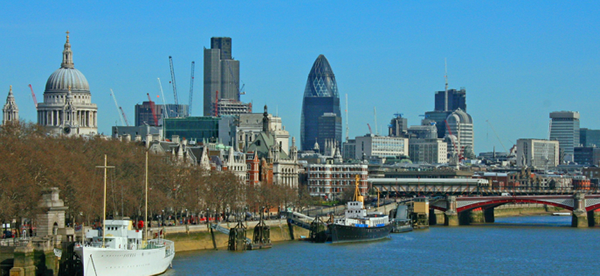A modest recovery
Economic recovery will be “sluggish by historic standards”, according to Ian McCafferty. Speaking at the annual CBI economic briefing, McCafferty reminded delegates that recovery induced by a financial crisis tends to be “twice as deep and lasts longer” than a recovery that is brought about through government policy or decisions.
Economies across the world are currently showing “upbeat signals”, he said. “It was only a year ago we were talking about a free-fall in the global economy.” However, inter-bank rates have normalised, falling to rates “not seen since before the Leeman’s crash.”
The Far East is experiencing a “significant” recovery with consumer spending driving China’s economic recovery. And, in the Euro zone, the UK and USA, McCafferty explained that “the flow of capital from banks is still constrained, productivity is recovering and corporate profits are being rebuilt.”
In the UK, which was one of the last economies to leave the recession, there has been a second quarter of positive growth. However, there are three legacies that will play a large part in shaping the next cycle, according to McCafferty.
The first is the fact that access to finance remains “constrained” for the next quarter, at least. “In physical terms businesses could always get finance but at an elevated price. The elevated cost of finance will be with us for some time while the banks rebalance their books,” McCafferty claimed.
Rising structural budget deficits are in second legacy to be dealt with. They have risen on an international scale. The UK now has a structural budget deficit of 8 per cent of GDP, compared to 7 percent in Japan, 3 per cent in USA and 0.5 per cent in Germany.
“The key issue here,” McCafferty believes, “is the timing of austerity packages”, which are scheduled to begin in 2011.
“Can the private sector build enough momentum to compete into the next cycle?” he asked.
The third legacy is the volatile rate of inflation. “I am often asked: ‘Can the Government engineer inflation to get them out of a financial crisis?’ But with the independence of central banks, this is impossible,” McCafferty said.
A sense of security was engendered between 1995 and 2007 because inflation was relatively steady “but now it’s going to be more volatile”, the economist warned.
He added: “There’s not a great deal of global spare capacity for energy or industrial raw materials.”
The next cycle in the UK will see a modest rise in consumption. This is a result of unemployment and inflation, which is “eating into disposable income”, causing consumers to save more and spend less.
“When I speak to CBI members I still sense caution for the medium term which is affecting investment decisions. Investment in the private sector won’t drive economic growth for some time yet,” McCafferty said.
Positive trends for the UK include the fact that it has experienced two quarters of positive GDP and a “significant turn in inventory cycle.” The housing market is stabilising, export orders are improving and industrial production is picking up.
“The worries of a double-dip recession are proved unfounded,” McCafferty concluded.
Public sector savings
In light of that £6 billion public sector cuts to be announced by the new Tory- Lib Dem Government, the Northern Ireland branch of the CBI has published a list of top actions for the Executive to take in order to achieve short-term cost savings. These include:
- All departments, agencies and local government cutting costs by sharing corporate services such as human resources, finance and facilities management
- Large procurements being led on a cross-government basis, coordinated by the Treasury and Cabinet Office to cut waste and reduce costs
- The Treasury acting to ensure a level playing field on treatment of VAT, pension and capital depreciation to enable new providers to come in with new ideas
- In addition to ministers and local government leaders, permanent secretaries and chief executives of local and central government bodies being held to account for delivering short-term savings.
However delegates attending the briefing voiced concern at the apparent “denial” of the Executive in dealing with spending cuts.






